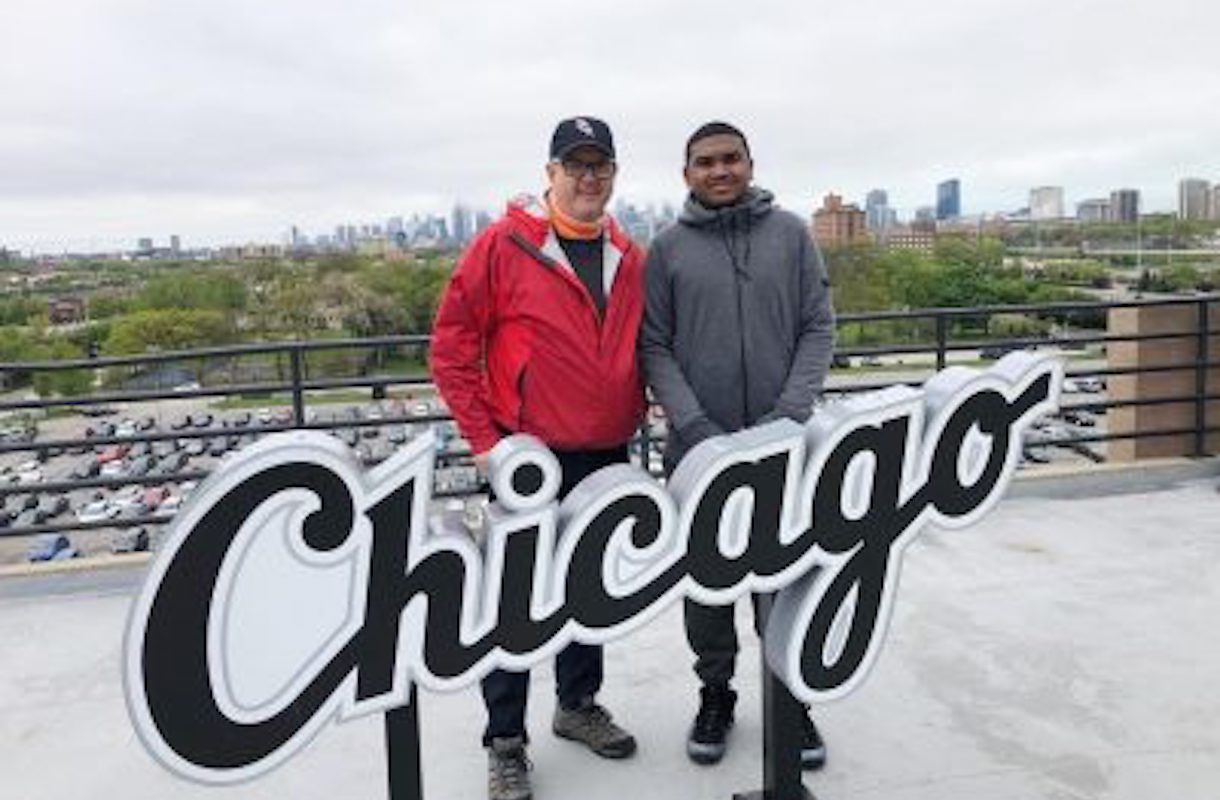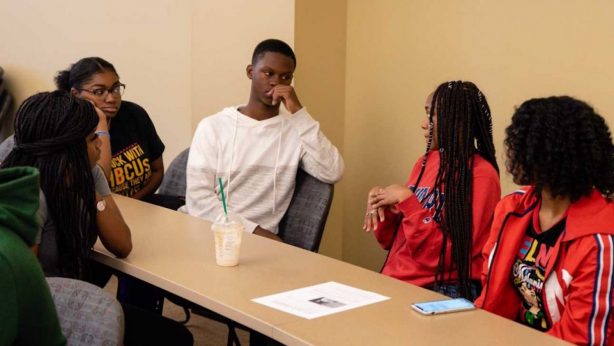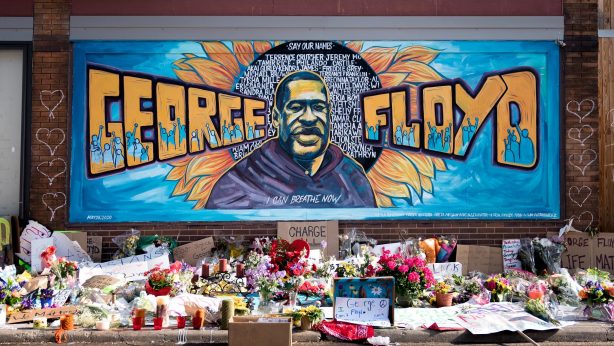Celebrating National Mentorship Month

By: Kelli Hobson, Vice President of Programs & Evaluation
January marks National Mentorship Month, an observance that calls us to “focus on how we can all work together to increase the number of mentors to make sure young people in our communities have dependable people to look up to and follow in their footsteps.” That’s a good and lofty goal, one that LINK Unlimited Scholars wholeheartedly supports. Our proven four-year fellowship model for our Scholars is even advanced by mentorship.
For more than five decades, LINK Unlimited Scholars has connected high-potential Black youth in Chicago with accomplished business and civic leaders. LINK Mentors provide guidance, academic tutoring, and college counseling to help close the opportunity gap and give students a stable foundation for success in high school, college, and beyond.
Our roster of Mentors has included a wide array of notable, accomplished figures — from Chicago Mayor Lori Lightfoot and former Governor Bruce Rauner, to top executives from Allstate and W.E. O’Neal Construction. This diverse group is united by the opportunity to leave an imprint on the next generation and lend a helping hand to young men and women in our city who demonstrate all the potential in the world, but lack the resources and support to reach their full potential and pursue their dreams.
As a LINK Mentor myself, I have seen firsthand the numerous benefits Black students receive from having professional mentors and the doors that open for them through these networking relationships.
However, this National Mentorship Month, it’s time for us to expand our definition of mentorship.
There is a pervasive notion that Black students, especially those from underserved communities, have no mentors that they can truly look up to. This just isn’t true. It’s not that Black youth lack mentors, it’s that they often lack access to the types of mentors — like executives and company leaders — that society often recognizes and highlights during a month like this. While professional and career-oriented mentors certainly bring value to our Scholars, they are by no means the only figures providing them guidance.
If a mentor is someone we can look up to, someone who trains and guides a member from a younger generation, why can’t we also lift up and celebrate the mothers and fathers who make daily sacrifices for their children? Or the neighbor who works several jobs to put food on the table? Or the musician whose lyrics connect with us and help us feel seen? These are all people with life experience to share and advice to give. And their presence enriches our lives and encourages us to become all we can be.
My mom is the greatest mentor I have ever had. While she did not have a college degree, she had plenty of wisdom to share with me about the importance of perseverance and of being family-oriented. I never called her a mentor or thought of her as such, but I wanted to do things the way she did them. That sounds like a mentor to me.
There is a disconnect that arises from our current understanding of values, affluence, and the title of “mentor.” We are quick to think of someone as a mentor when they come from an esteemed position, but not as quick to recognize our everyday role models as such. However, those who teach us about consistency, dedication, business sense, loyalty, and community are mentors in their own right, no matter the job or status they may hold.
LINK Mentors fulfill a vital role in our work and in our Scholars’ lives. The unique perspective they provide is powerful. But as I and the rest of the LINK team continue to reflect during this National Mentorship Month, we are reminded that the “deficit-mentality” surrounding the conversation of mentorship for Black youth isn’t always true. Black youth have mentors in the form of their family members, community leaders, and favorite artists. Our job at LINK Unlimited is not to fill a void in our Scholars’ lives where mentors should be, but to supplement, enhance, and expand on the mentorship our Scholars have had all along.


